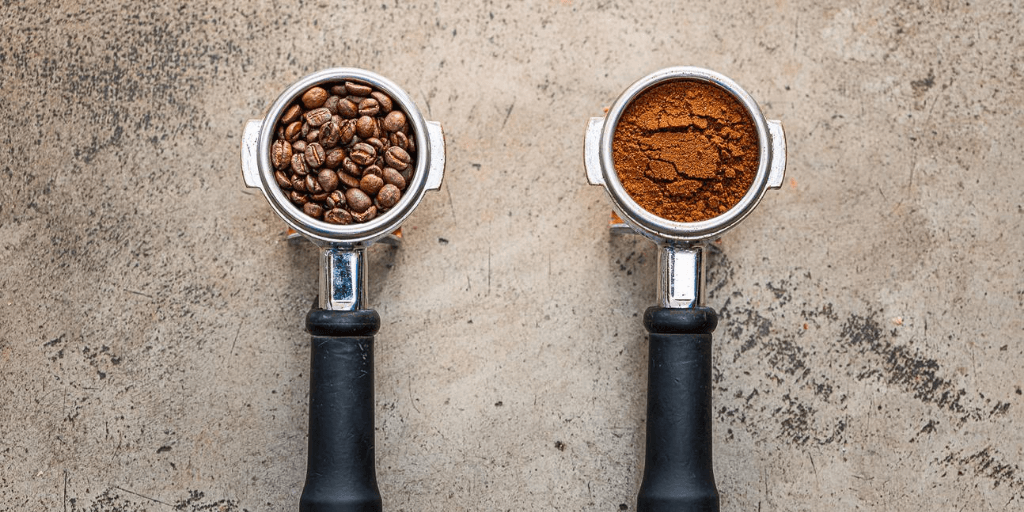Environmental Journal: Entry 2
So, I thought I would start with coffee – an obvious choice considering much of my waking day is consumed by thinking about, talking about and drinking the stuff.

The coffee industry on a whole has some shocking statistics when it comes to waste. I will not go into them all as it is a little overwhelming, however, I endeavour to cover them all in this journal. For now, I will make a start with coffee grounds.
Last year, the UK alone produced up to 500,000 tons of coffee ground waste, with a large majority being sent to landfill. This waste produces 1.8million tons of carbon emissions in the form of methane – a greenhouse gas that is 34 times more potent than carbon dioxide and one of the main contributing factors to global warming. Pretty worrying, I know, and slightly too large a number to wrap your head around… As with everything there are ways we can all help to reduce these numbers.
Let’s start with the big ideas:
I’ve recently read an insightful report on the potential of a coffee ground recovery programme, carried out by an Australian environmental research group. There are some interesting proposals set out and it’s worth a read for a bigger solution. Show this to your local coffee shop: https://planetark.org/documents/doc-1397-summary-report-of-feasibility-study-april-2016.pdf
Biomass is something that I am interested in taking a deeper look at. (we have been involved in a small-scale project that I will share more info on in future posts). I am still not fully convinced it provides all the answers but it has to be a better alternative to landfill. Check out the link for further info: https://www.bio-bean.com/news-post/is-recycling-waste-coffee-grounds-the-best-choice/

If you want to keep it local, why not find your local allotment association and offer to donate your grounds for the compost heap? Coffee is rich in nitrogen and will help to add nutrients to the soil and increase resistance to pathogens. Take a look at this useful guide on how to compost your grounds: https://www.gardeningknowhow.com/composting/ingredients/coffee-grounds-gardening.htm#:~:text=The%20benefit%20of%20using%20coffee,as%20well%20as%20attract%20earthworms.&text=%E2%80%9CFresh%20coffee%20grounds%20are%20acidic.
At home:
I currently drink a cup a day. I use a V60 dripper as my brew of choice and I do two things of significance to reduce my impact. Firstly, I have just stopped using paper filters and have opted for a metal reusable alternative. I’m currently working on a brewing guide for this, which I will drop onto YouTube when mastered and maybe do a separate journal entry.

Secondly, I have a compost bin at the end of the garden that I use to throw all of my food waste into. I am currently onto my fifth year of compost use. This year the compost has been used to grow and nourish the plants in my garden along with all my herbs and lettuce, and I am hoping it will do wonders for the various varieties of tomatoes I’m growing.
If you don’t have a garden, do not worry! You can still compost on a smaller scale and use for indoor plants and herbs. I find having a small compost bin in the kitchen encourages me to pop all my food waste in there whilst I am cooking.
At work:
We are fortunate to roast all our coffee in the beautiful village of East Rounton. We roast in an old granary and have access to one of the farm’s large compost pits. We currently discard of all our spent coffee grounds and coffee chaff (this will be another post) into this, and this is used to fertilise the many fields of arable cropland around us.

I am currently looking at a longer-term strategy for our coffee shop (Bedford Street Coffee), as this will be a larger amount of spent grounds and will take further research but will help in reducing our impact even further (keep a lookout for future posts on this).
Obviously, not everyone has access to the farm’s compost pile, but we all eat and drink at work, and if you are looking to start composting at work and even in the office, check out the link below for some guidance.
http://www.kompost.co.uk/case-studies.html
I am always looking for alternative methods to reuse any waste so if you have any ideas, please do leave a comment.
Cheers,
Burts

